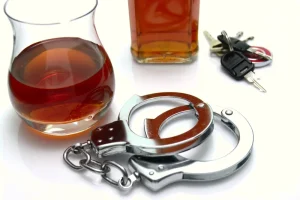Creating a Relapse Prevention Plan: Worksheets and Tips + Free Template Your Path to Recovery
What behaviors or situations are helpful or harmful to your recovery? Being clear about these will help you articulate them more effectively to others. In case of emergency, have a clear plan with proactive steps, such as calling a specific person, attending a support group meeting, or going to a safe place. You can keep a list of emergency contacts, including supportive friends, family, and healthcare providers.
Humility in Addiction Recovery: A Crucial Element for Lasting Sobriety
This plan should be written down and reviewed regularly as one passes through the various stages of recovery. This process may be done by yourself or with professional assistance. Developing effective coping strategies is essential for managing triggers and preventing relapse.
- However, you’re inadvertently placing yourself at risk for a relapse.
- Attending or resuming attending meetings of some form of mutual support group can be extremely valuable immediately after a lapse or relapse.
- It forces people to reevaluate their lives and make changes that non-addicts don’t have to make.
Preventing Relapse
This is when you start to have thoughts about using substances again. This could include avoiding friends and family, not caring for yourself, or not attending therapy or support groups. A strong support system is an integral part of staying sober in the long-term. This means surrounding yourself with people who actively support your recovery.
I’m In Recovery
- Every country, every town, and almost every cruise ship has a 12-step meeting.
- The benefits and rewards of healthy routines will naturally arise and reinforce our new behavior.
- You can keep a daily planner and include time slots for activities that support your recovery, such as therapy sessions, support group meetings, or time with friends and family.
These are “dangerous situations” that put us on a slippery slope toward relapse. Other than joining therapy groups and treatment programs, accessing relapse prevention workbooks can help immensely. Surround yourself with a strong support system of friends, family, and sober acquaintances.
Developing an Effective Action Plan For Relapse Prevention
The belief is that recovery requires some special strength or willpower that the individual does not possess. Past relapses are taken as proof that the individual does not have what it takes to recover [9]. relapse prevention plan Cognitive therapy helps clients see that recovery is based on coping skills and not willpower. Occasional, brief thoughts of using are normal in early recovery and are different from mental relapse.
Triggers and Warning Signs
- This means surrounding yourself with people who actively support your recovery.
- She attended both an inpatient and outpatient opioid addiction treatment program but was nervous about being able to stay clean.
- If someone has already undergone a treatment program with counseling and therapy but continue to relapse, it might be time to explore alternative care or enter an extended, intensive treatment program.
- Keep a note of your therapist’s phone number, emergency contacts, and a concrete action plan in case you relapse.
- When individuals continue to refer to their using days as “fun,” they continue to downplay the negative consequences of addiction.
Over time, the drug use and dependency affected his work performance, eroded his happiness, and strained his relationships with family members, friends, and colleagues. Learning to play an instrument or joining a group activity such as a singing class can be a therapeutic outlet for emotional expression. It can also promote relaxation and build social connections, thus aiding in relapse prevention. Mutual support and accountability encourage you and other group members to stay on track. You can also lean on others for encouragement during difficult times. This sense of belonging and shared purpose can significantly strengthen your resolve to maintain sobriety.
Fourth, most relapses can be explained in terms of a few basic rules [4]. Educating clients in these few rules can help them focus on what is important. In conclusion, developing a relapse prevention plan is a critical step in maintaining long-term recovery. By identifying personal triggers and warning signs, creating effective coping strategies, and building a strong support system, individuals can increase their readiness to handle potential challenges. By carefully assessing personal triggers and warning signs, creating effective coping strategies, and identifying a strong support system, individuals can craft an effective relapse prevention plan.
Creating a list of warning signs can give a person more insight into their relapse. Sharing the list with the treatment team can provide them with needed information to prevent relapse in the patient. It’s common for interest and energy levels to flag after an initial period of active participation and engagement in group activities for relapse prevention. To encourage continued active involvement, it’s important for the group facilitator to mix things up to keep the group interesting. When planning relapse prevention group activities, it’s crucial to consider the needs and preferences of the participants.
You can also learn skills such as communication and assertiveness to manage triggers and cravings effectively and repair your relationships with family members and friends. These skills also promote emotional stability and reduce your risk of relapse. If you’re not sure how to move through the recovery process, follow one of the relapse prevention plan models that are available. Substance abuse and mental health expert Terry Gorski has a nine-step relapse prevention plan that can help you recognize and manage relapse warning signs.
It hinges on the fact that most cravings are short-lived—10 to 15 minutes—and it’s possible to ride them out rather than capitulate. Learning techniques of mindfulness allows you to distance yourself from the e craving and examine it rather than automatically accept its command. Recognize that cravings are inevitable https://ecosoberhouse.com/ and do not mean that a person is doing something wrong. • Unpleasant feelings including hunger, anger, loneliness, and fatigue. If you are experiencing a medical emergency and need immediate care, call 911. When an addicted person acts on their craving, a surge of neurotransmitters causes them to feel pleasure.





Plaats een Reactie
Meepraten?Draag gerust bij!